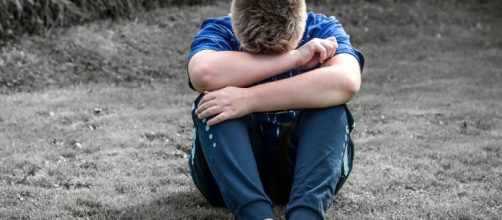Childhood depression is an illness where a Child's depressed mood persists, can include acting out and angry behavior, and interferes with a child's ability to function. About 5 percent of children and adolescents in the general population suffer from depression at any given point in time. Childhood depression is becoming an ever growing problem. According to Victoria Prooday, a registered Occupational Therapist, recent statistics show:
- 1 in 5 children has mental health issues
- 43% increase in ADHD diagnosis
- 37% increase in teen depression
- 200% increase in suicides in children 10 to 14 years old
Today's children are deprived of a healthy childhood
According to Victoria, children are being deprived of the fundamentals of a healthy childhood, such as emotionally available parents, clearly defined limits, balanced nutrition, adequate sleep, social interaction, and creative play.
Instead, children are being served with parents who let kids set the rules, an indoor lifestyle with very little activity, instant gratification and the absence of boredom.
A recent story in the Miami Herald claims the rate of teens reporting depression grew by 37 percent and suicide rates have been increasing dramatically, according to Johns Hopkins Bloomberg School of Public Health. In addition, researchers reported an increase in teen admissions at 32 children’s hospitals due to suicide attempts.
Is my child depressed?
A new study that was published in the journal of 'Translational Psychiatry' shows that depression in children appears to start as early as age 11.
Dr. Victor Fornari, director of child and adolescent psychiatry at Zucker Hillside Hospital in New York, in the U.S has found that children will likely not say that they are sad.
He continues to say that high anxiety often is the start of the depression. It may be that they refuse to go to school, have head and stomach aches and pretend they are ill. They will be scared to fail or be rejected. Irritability is cited as one of the obvious signs that your child your child may well be depressed. Teachers can often notice changes in behavior.
If you are looking for confirmation of your feelings, you will find that teachers often notice changes in behavior.
Who should I contact?
If you suspect your child may be depressed, you should seek help from your pediatrician or family doctor as soon as possible. Specialists are available to support and help and your child.


